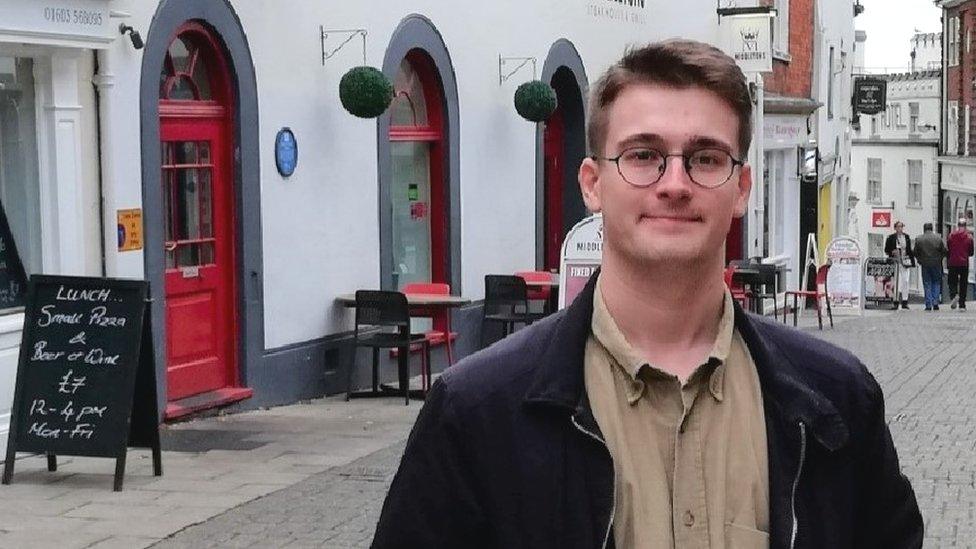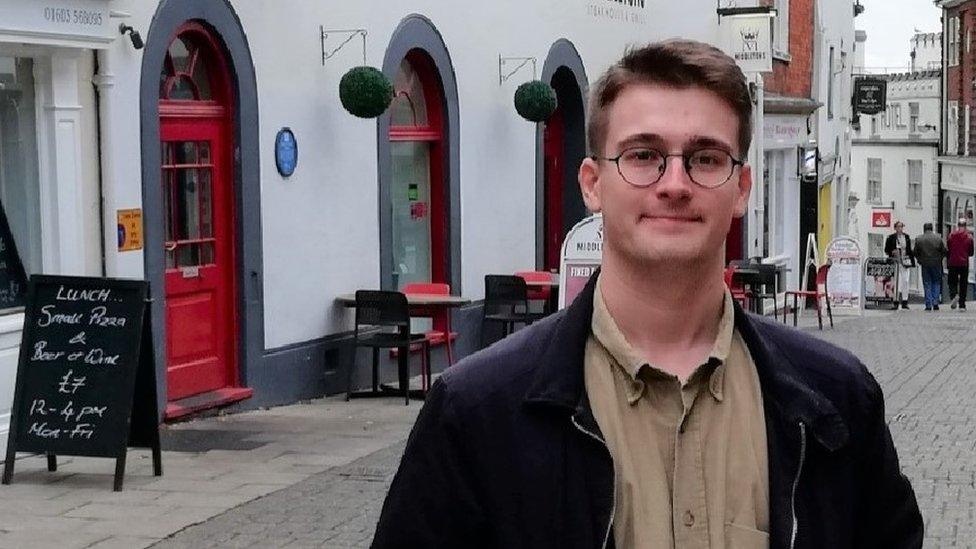Coroner warns of loss of compassion at Norfolk and Suffolk crisis unit
- Published

Theo Brennan-Hulme died after failings in mental health care, a corner has said
A culture of "bullying" within a team meant to support people in crisis led to the belief that some suicides were "inevitable", a coroner has warned.
Theo Brennan-Hulme was found at the University of East Anglia on 12 March 2019 after "inadequate" assessments by Norfolk and Suffolk NHS Foundation Trust (NSFT), the coroner said.
Jacqueline Lake, coroner for Norfolk, said there was a risk of future deaths.
NSFT said the support offered "should have been better".
In her prevention of future deaths report, external following the inquest into Mr Brennan Hulme's death, Mrs Lake said: "Evidence was heard of a historic culture of bullying and harassment within the Crisis Resolution Home Treatment Team which has led to a loss of compassion in some instances with the view that some suicides are "inevitable" and some reluctance to recognise when cases should be referred to the Team."

BBC Action Line

She said although work had been done to remedy this it had been recognised, "there was still a distance to go" and areas where the culture needed to change.
Mr Brennan-Hulme, 21, from Stoke-on-Trent, had Asperger's syndrome - a form of autism - and suffered from anxiety attacks, as well as having a history of self-harm and suicidal thoughts.
He had sought the help of the university's wellbeing service and liaised with his academic adviser during his induction week in September 2018, the coroner said.

Mr Brennan-Hulme was a first-year student at the University of East Anglia
After he attended Norfolk and Norwich University Hospital's accident and emergency department, he was referred to the NHS mental health service, but appointments were cancelled due to staff shortages, the coroner said in her report.
She said at no point during an emergency assessment on 28 February had reasonable adjustments been made to take into account Mr Brennan-Hulme's diagnosis of Asperger's Syndrome.
Dr Dan Dalton, chief medical officer at NSFT, said: "Theo's death was a tragedy and I'm sorry for his family's loss. We know that the support given to Theo could and should have been better.
"Our internal investigation highlighted missed opportunities to help Theo. Changes have already been made to prevent this happening again, including improving communication with families and carers, improving the confidence of staff in assessing autistic people and regularly reviewing the accessibility of our crisis services.
"We are reviewing the coroner's report to prevent future deaths and will make any further changes that are needed."
If you have been affected by any of these issues in this story you can visit the BBC's Action Line.

Find BBC News: East of England on Facebook, external, Instagram, external and Twitter, external. If you have a story suggestion email eastofenglandnews@bbc.co.uk, external
- Published3 March 2020

- Published10 February 2022
